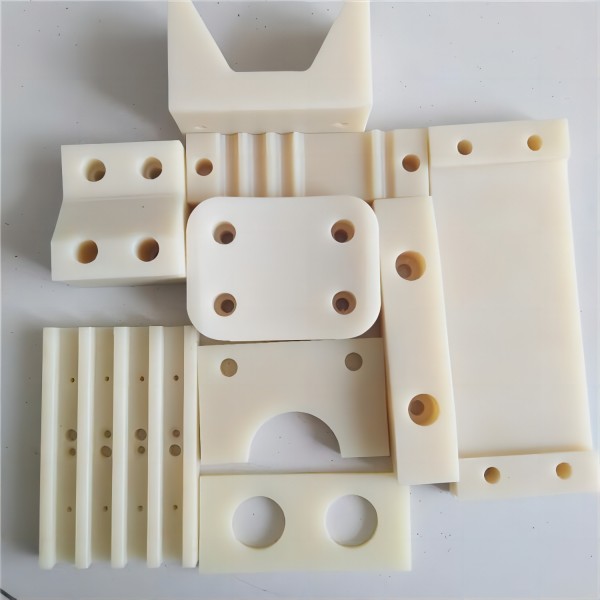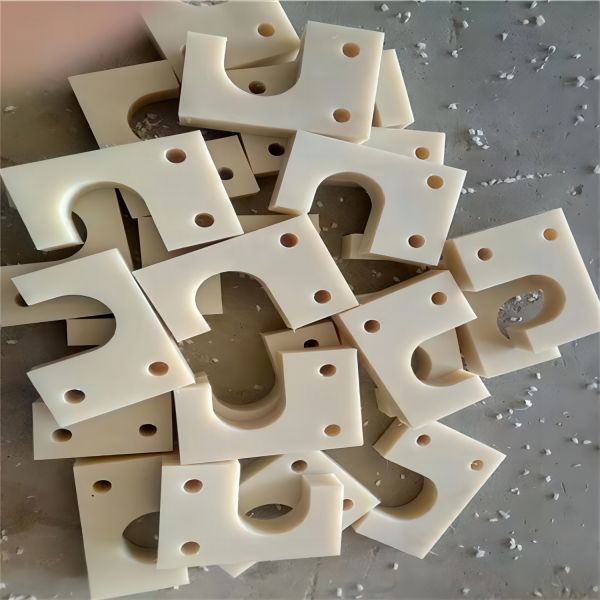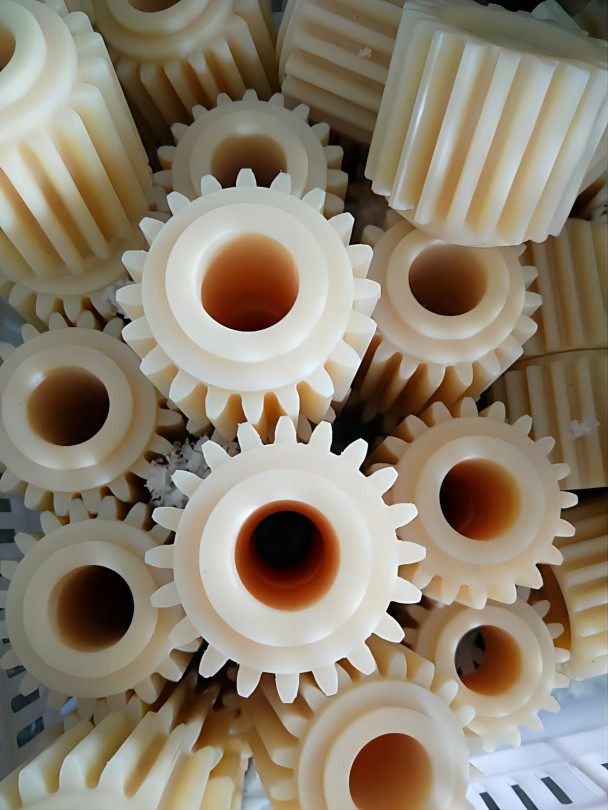
Privacy statement: Your privacy is very important to Us. Our company promises not to disclose your personal information to any external company with out your explicit permission.
Wear-resistant nylon materials are mainly used to reduce the coefficient of friction or wear of nylon by adding wear-resistant additives such as carbon fibers, molybdenum disulfide, graphite, PTFE powder or silicone powder to nylon, and the dosage of these additives is generally between 3% and 15%. Generally speaking, wear-resistant nylon is mainly used in the field of mechanical parts for manufacturing various wear-resistant products (injection molding method), such as bearing cages, bushings, friction-reducing rings, friction-reducing pads and so on. In recent years, wear-resistant nylon has been widely used in the automotive field.

Compared with pure nylon resin, wear-resistant nylon has lower coefficient of friction, better wear resistance and self-lubrication, as well as high mechanical properties and good heat, oil and chemical resistance, it also greatly reduces the water absorption and shrinkage of raw materials.
There are many improved varieties of self-lubricating wear-resistant nylon, such as graphite nylon PA12, graphite nylon Pa66, graphite nylon PA12, carbon fiber nylon, nylon/molybdenum disulfide, nylon/Polytetrafluoroethylene and nylon 1010/molybdenum disulfide. Graphite nylon is particularly suitable for wear-resistant lubricant materials, this is because graphite is often used as a lubricant in the mechanical industry, lubricants can not be used at high speed, high temperature and high pressure, while graphite wear-resistant materials can slide at high speeds of 200 ~ 2000 ℃, working without lubricant, graphite materials are widely used in many equipment that conveys corrosive media, such as piston cups, seals and bearings, operation without adding lubricant, graphite emulsion is also a good lubricant for many metal processing.

However, certain mechanical parts (e.g., shims used for transmission gears) have high requirements for accuracy in the thickness direction, thus placing stringent requirements on the uniformity of the nylon material in the thickness direction. Conventional wear-resistant nylon products are prone to a concave effect on the end face due to heat shrinkage and other factors. In particular, the large dimensional difference between core shrinkage and edge shrinkage of thick parts is a prominent problem and can only be used after targeted improvements. This is also the difficulty of technical realization, that is, how to improve the dimensional accuracy of the product on the basis of ensuring the wear-resistant effect, and the cost is not too high.
Several commonly used wear-resistant additives
(1) Carbon fiber
Carbon fiber can significantly improve the integrity of the material structure, load resistance and wear resistance. And glass fiber is different from carbon fiber is a softer and less scratchy fiber, carbon fiber will not scratch its friction with the friction of iron or steel friction surface.
(2) Molybdenum disulfide
Molybdenum disulfide is a wear-resistant additive mainly used in nylon plastics. Molybdenum disulfide acts as a crystallizing agent to increase the crystallinity of nylon, creating a harder and more wear-resistant surface. Molybdenum disulfide has a high affinity for metals. Once adsorbed on a metal surface, the molecules of molybdenum disulfide will fill the pores on the metal surface that can only be seen with a microscope and will make the metal surface smoother, which makes molybdenum disulfide an ideal wear-resistant additive for applications in which the nylon and the metal rub against each other.
(3) Graphite
The chemical structure of graphite is a unique lattice structure, this unique chemical structure makes the graphite molecules in the very small friction will easily slide each other, this wear-resistant properties in the water environment is particularly important, so graphite as an ideal wear-resistant additives used in a lot of parts placed in the water, such as the water store shells, blades and so on.
(4) Polytetrafluoroethylene (PTFE)
PTFE has a low coefficient of friction, and during friction PTFE molecules form a lubricating film on the surface of the part. PTFE has excellent lubrication and wear resistance under friction, and is the optimal wear additive in high-load applications. These high-load applications include hydraulic piston ring seals, thrust washers. PTFE content in non-crystalline plastics is generally 15%, while in crystalline plastics is generally 20%.
(5) Silicone
Silicone, the scientific name is generally called polysiloxane (or polydimethylsiloxane), low molecular weight polysiloxane liquid commonly known as silicone oil, ultra-high molecular weight polysiloxane appearance of white particles or powder, mainly used as a plastics processing aids, to overcome the traditional silicone oil processing troubles and performance shortcomings, which can significantly reduce the coefficient of friction of plastics to improve the slipperiness, to improve the surface luster, improve the resistance to scratches, and at the same time, have a good stability and non-migration. Good stability and non-migration.

November 17, 2024
November 16, 2024
August 27, 2021
August 26, 2021
PEEK ball is a special type of ball made of polyether ether ketone (PEEK), which has excellent chemical stability, abrasion resistance, and high temperature resistance.PEEK ball is widely used in...
PVDF Application Areas Different models of PVDF products are suitable for different application scenarios. According to application fields, PVDF can be divided into conventional grade products and...
Application Performance Advantages of MC nylon MC nylon is a new type of engineering plastics, due to its outstanding comprehensive performance, so that its status in engineering plastics is rapidly...
Types of nylon: 1. Nylon - 6 (PA6) Nylon -6, also known as polyamide -6, that is, polycaprolactam. Translucent or opaque opalescent resin. 2. Nylon - 66 (PA66) Nylon-66, also known as polyamide-66,...
Email to this supplier
November 17, 2024
November 16, 2024
August 27, 2021
August 26, 2021

Privacy statement: Your privacy is very important to Us. Our company promises not to disclose your personal information to any external company with out your explicit permission.

Fill in more information so that we can get in touch with you faster
Privacy statement: Your privacy is very important to Us. Our company promises not to disclose your personal information to any external company with out your explicit permission.